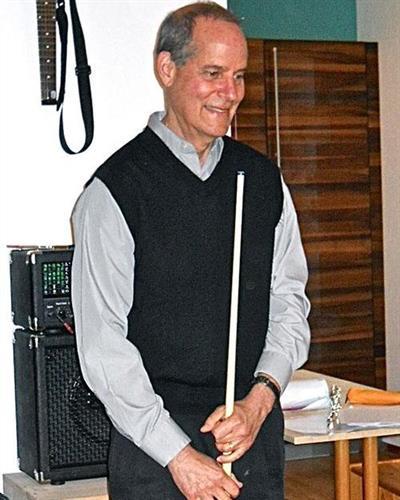Research/Areas of Interest
Group theory, especially buildings and other geometric aspects of group theory
Education
- Dr. rer. nat., Technische Universität Berlin, 1973
Biography
I work in group theory. Group theory is the mathematical theory of symmetry. Symmetry is a basic notion which plays a unifying role in both mathematics and theoretical physics. The study of simple groups -- those from which all other groups are assembled -- reveals uncanny connections to geometrical structures of various sorts. In fact, it is impossible for me to say whether the group theory I study is more a branch of algebra or more a branch of geometry, and it is precisely this ambiguity that I find particularly fascinating.
My current expertise is in the theory of buildings. Buildings are geometric structures discovered and studied over a lifetime by the great Jacques Tits at the Collège de France. Spherical buildings provide a systematic description of a fundamental class of simple groups which include all the finite simple groups of Lie type. I am especially interested in the "exceptional groups," whose spherical buildings are particularly intricate and beautiful objects.
Buildings are made up of of substructures called apartments which are glued together according to certain algebraic rules. The apartments of a spherical building, and hence spherical buildings themselves, are crystal-like in nature. Affine buildings, on the other hand, have apartments which consist simply of dots spread systematically across ordinary space, so in some sense they should be more familiar things. Instead the algebraic rules governing the structure of affine buildings turn out to depend on properties of the prime numbers! Thus in the study of affine buildings, we see the intertwining not just of group theory and geometry, but algebra and number theory as well.
My current expertise is in the theory of buildings. Buildings are geometric structures discovered and studied over a lifetime by the great Jacques Tits at the Collège de France. Spherical buildings provide a systematic description of a fundamental class of simple groups which include all the finite simple groups of Lie type. I am especially interested in the "exceptional groups," whose spherical buildings are particularly intricate and beautiful objects.
Buildings are made up of of substructures called apartments which are glued together according to certain algebraic rules. The apartments of a spherical building, and hence spherical buildings themselves, are crystal-like in nature. Affine buildings, on the other hand, have apartments which consist simply of dots spread systematically across ordinary space, so in some sense they should be more familiar things. Instead the algebraic rules governing the structure of affine buildings turn out to depend on properties of the prime numbers! Thus in the study of affine buildings, we see the intertwining not just of group theory and geometry, but algebra and number theory as well.
